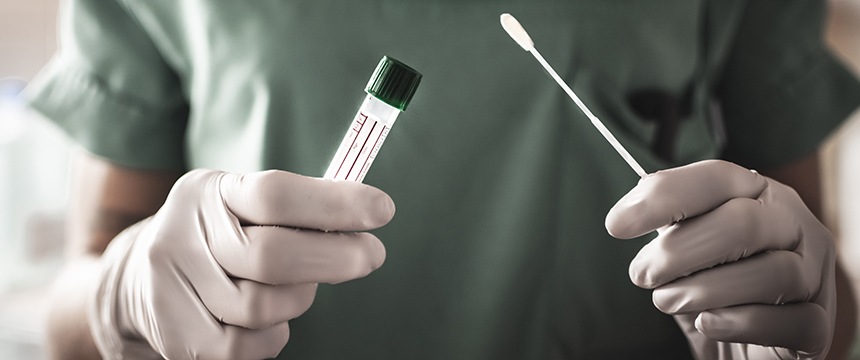FDA Increases Scrutiny of COVID-19 Serology Tests: What Commercial Manufacturers Need to Know

On May 4, 2020, the Food and Drug Administration (FDA) updated its “Policy for Coronavirus Disease-2019 Tests During the Public Health Emergency (Revised) | Immediately in Effect Guidance for Clinical Laboratories, Commercial Manufacturers, and Food and Drug Administration Staff” previously issued on February 29, 2020, and updated on March 16, 2020.
New Requirement for Commercial Manufacturers of Serology Tests
With the updated guidance, the commercial manufacturers of serology tests must submit an Emergency Use Authorization (EUA) request to the FDA. Serology or antibody tests generally refer to tests that detect antibodies produced in response to the antigens associated with the SARS-CoV-2 virus; these tests are not used for diagnosis of infection, but rather detect whether someone who has been exposed to the virus has seroconverted.
If a commercial manufacturer is currently marketing tests under the March 16th guidance, the company is required to file an EUA within ten (10) business days from the date of notification or the date of publication of this guidance, whichever is later. If the commercial manufacturer does not submit an EUA within the 10-day limit, the agency will release the information to the public and consider enforcement action to remove the products from the market. Requirements for CLIA-certified clinical labs have not changed and are discussed below.
In light of “unscrupulous actors” falsely claiming their serological tests are FDA-approved or authorized, FDA revised the March 16th policy to include FDA review of commercial manufacturers’ serology tests. The policy for laboratory diagnostic tests remains unchanged from the March 16th version.
Distribution Prior to Emergency Use Authorization
The manufacturers can commercially distribute serology tests while the manufacturer is preparing its EUA request: (1) after the test has been validated, (2) after the manufacturer gives notification to the FDA, and (3) provided the manufacturer includes specific information in the instructions for use, including:
- This test has not been reviewed by the FDA.
- Negative results do not preclude acute SARS-CoV-2 infection. If acute infection is suspected, direct testing for SARS-CoV-2 is necessary.
- Results from antibody testing should not be used to diagnose or exclude acute SARS-CoV-2 infection.
- Positive results may be due to past or present infection with non-SARS-CoV-2 coronavirus strains, such as coronavirus HKU1, NL63, OC43, or 229E.
EUA templates for commercial manufacturers’ use are provided within the guidance to facilitate the preparation, submission, and authorization of an EUA.
Clinical laboratories certified under the Clinical Laboratory Improvement Amendments (CLIA) to perform high-complexity testing are still not required to submit a EUA under the revised guidance. While laboratories are encouraged to submit EUA requests for serology tests, the FDA does not intend to object to the development and use of serology tests to identify antibodies to SARS-CoV-2 by such laboratories where the test has been validated, notification is provided to the FDA, and information that helps users and patients understand the test results is included in the test reports.
Validation Study Requirements
All clinical tests should be validated prior to use. In the revised guidance, FDA provides recommendations regarding testing that should be performed to ensure analytical and clinical validity of a test. The validation studies should include:
- Cross-reactivity/Analytical Specificity
- Class Specificity
- Clinical Agreement Study
FDA Notification
Commercial manufacturers must notify FDA when their assay has been validated and they intend to begin distribution or testing. The notification should include:
- Name of the manufacturer
- Address
- Contact person
- Copy of instructions for use that includes a summary of assay performance
- If manufacturer plans to use distributor(s), the name of all distributors.
For more information about current guidance, please contact your Foley relationship partner. For additional web-based resources available to assist you in monitoring the spread of the coronavirus on a global basis, you may wish to visit the CDC and the World Health Organization.
Foley has created a multi-disciplinary and multi-jurisdictional team, which has prepared a wealth of topical client resources and is prepared to help our clients meet the legal and business challenges that the coronavirus outbreak is creating for stakeholders across a range of industries. Click here for Foley’s Coronavirus Resource Center to stay apprised of relevant developments, insights and resources to support your business during this challenging time. To receive this content directly in your inbox, click here and submit the form.



